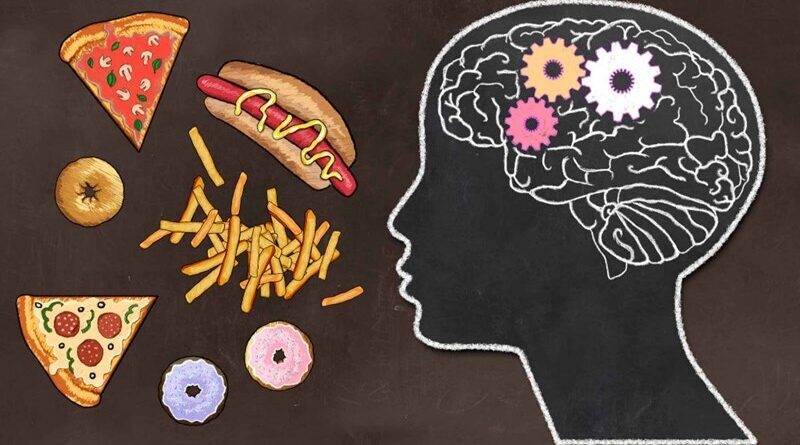The Real Truth About Unlocking the Depths of Food Addiction
Food addiction is a widespread and intricate problem that impacts people all around the world. An increasing number of people are finding it difficult to keep a positive relationship with food as a result of the rise of highly processed and addictive meals. It is essential to comprehend the science underlying food addiction, as well as its symptoms and effects on physical health.
This article delves deeply into the complexities of food addiction, looking at its sources, impacts, and recovery methods. Whether you are looking to support someone else on their path or are personally impacted. This thorough guide attempts to offer insightful information and doable answers.
Signs and Symptoms of Food Addiction
Early intervention and successful management of food addiction depend on an understanding of the symptoms and indicators of the condition. This section lists some signs that could indicate someone is having trouble with compulsive eating. Important details consist of:
Cravings and Obsession:
Examine how people who are addicted to food can have strong desires and become obsessed with particular meals. Which frequently results in obsessive eating despite harmful effects.
Loss of Control:
Talk about how people may find it difficult to regulate their eating habits. Often consuming more food than they want to, and feeling like they can’t stop even when they try to cut back.
Withdrawal Symptoms:
Consider the appearance of withdrawal symptoms, similar to those associated with substance dependence. Such as anger, mood fluctuations, and physical discomfort while trying to cut back on or stop eating certain foods.
Tolerance:
Explain how a person’s tolerance to food may increase over time. Requiring them to eat more to feel the same level of satisfaction or pleasure. This can result in a loop of ever-higher consumption.
Emotional Eating:
Draw attention to the connection between emotional eating and food addiction since people may turn to food as a coping method for stress, boredom, worry, or other emotional states.
Impact of Food Addiction on Physical Health
Food addiction can have serious negative effects on one’s physical health, impairing several bodily functions. The harmful impacts of compulsive eating on general health and well-being are examined in this section. Important details consist of:
Obesity and Weight Gain:
Examine how food addiction raises the risk of obesity and illnesses connected to obesity. Such as type 2 diabetes, cardiovascular disease, and hypertension, by causing excessive calorie consumption and weight increase.
Food Addiction Nutritional Imbalance:
Talk about how eating habits that are addictive frequently place a high priority on consuming highly processed, high-calorie foods that are deficient in important nutrients. This can result in nutritional imbalances and deficiencies that can risk one’s general health.
Metabolic Dysfunction:
Examine how food addiction affects metabolic health, taking into account insulin resistance, inflammation, and dyslipidemia, all of which can put a person at risk for developing metabolic syndrome and other illnesses.
Gastrointestinal Issues:
Think about how consuming too much of some foods, particularly those that are high in fat, sugar, and artificial additives, can cause digestive issues like bloating, acid reflux, and irritable bowel syndrome (IBS) by interfering with gastrointestinal function.
Food Addiction Compromised Immune Function:
Draw attention to the possible harm that food addiction may do to immune system performance since poor dietary decisions and dysbiosis of the gut microbiota can impair immunity against illnesses and infections.
You can also watch the video to learn more about this.
Strategies for Overcoming Food Addiction
A comprehensive strategy that takes into account the psychological and physiological components of compulsive eating behaviors is necessary to overcome food addiction. This section offers doable tactics and methods to assist people in taking back control and developing a positive relationship with food. Important details consist of:
Awareness and Education:
To promote awareness and comprehension of their eating habits and behaviors. Encourage people to educate themselves about the nature of food addiction, including its causes, triggers, and repercussions.
Mindful Eating Practices:
Encourage the use of mindfulness-based strategies like mindful eating. Which include developing a nonjudgmental mindset toward eating experiences, appreciating the tastes and textures of food, and paying attention to signals of hunger and fullness.
Food Addiction Establishing Healthy Habits:
To promote general health and well-being, encourage the adoption of wholesome eating practices. That include consistent meal times, a range of whole foods, and portion control.
Identifying and Managing Triggers:
Assist people in recognizing and addressing the factors—such as social pressures, environmental cues, and emotional stress—that lead to it. Together, they can create alternative coping processes and coping skills to control cravings and lessen the need to turn to food for emotional solace.
Building Support Networks:
Urge them to seek out help from friends, family, or support groups so they may feel connected and like they belong on the road to recovery. These people can offer accountability, empathy, and encouragement.
Conclusion
In conclusion, with its intricate interaction of biological, psychological, and environmental elements, food addiction is a serious problem for modern civilization. Recovery requires identifying the warning signs and symptoms, comprehending how they affect one’s bodily and emotional well-being, and putting management techniques into practice.
People may take back control of their relationship with food and create the path toward a healthier. More balanced lifestyle by raising awareness, encouraging mindful eating practices, forming healthy habits, and creating strong support networks. Let’s work together to traverse the complex terrain of food addiction, enabling people to surmount challenges and welcome a more promising and health-conscious future.
You Can Read More About Healthy Food
Ultimate Guide to Healthy Foods to Lose Weight Journey
Gut Healthy Foods: Nourish Your Microbiome for Vibrant Well-being
